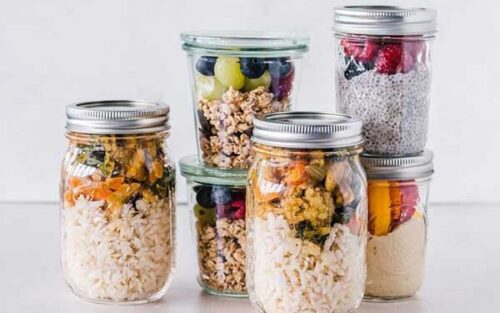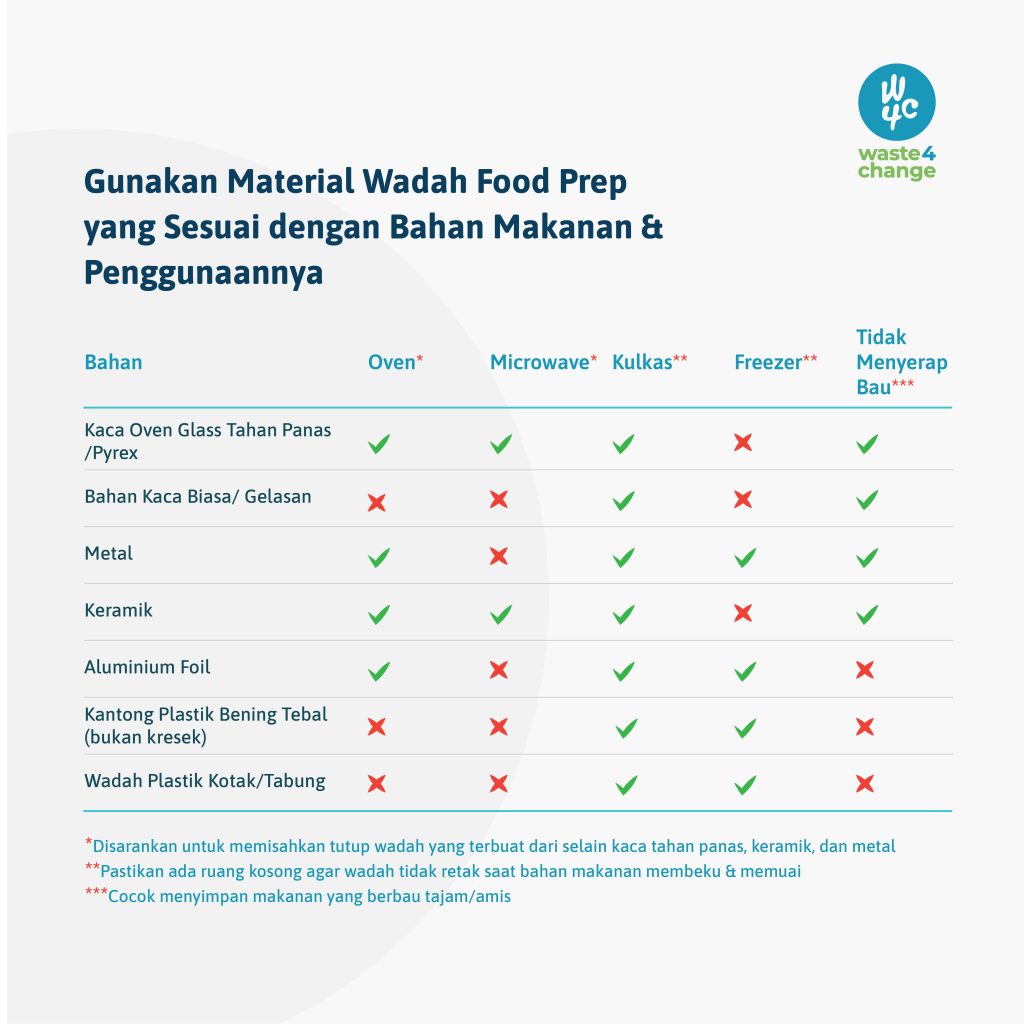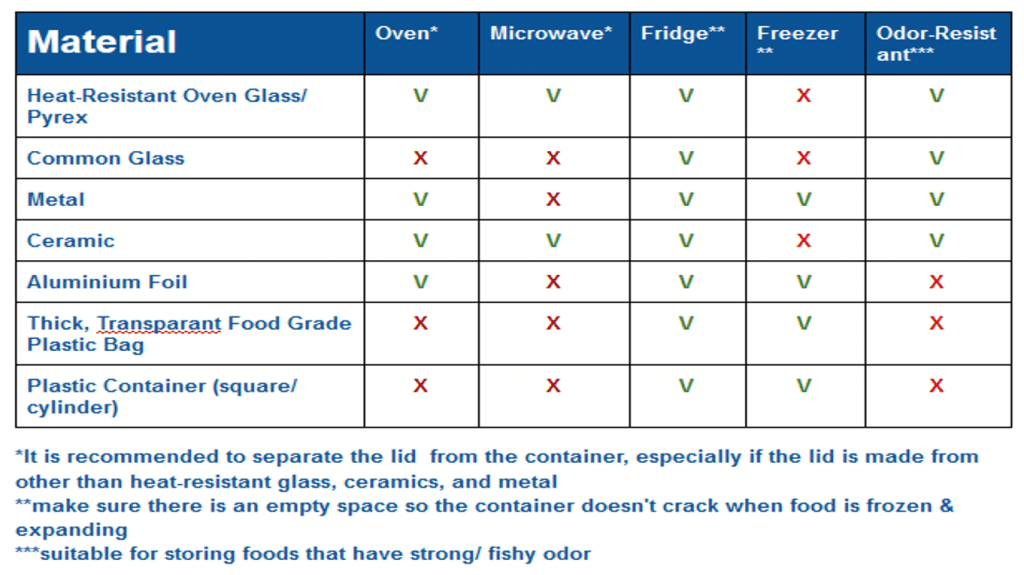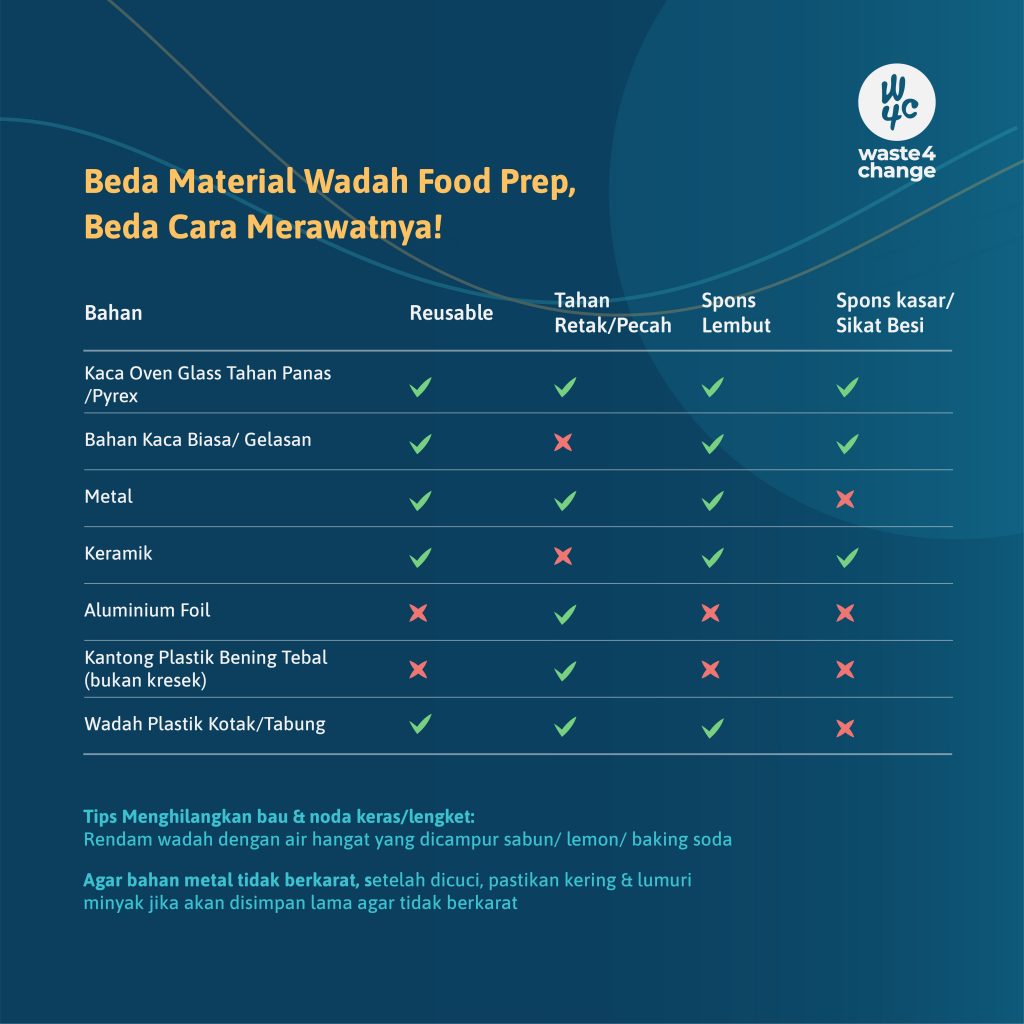How to Prevent Your Used Food Containers from Turning into Waste that Pollutes the Environment
Food loss and waste is still be a problem that must be faced today. In addition to excessive food consumption, food loss and waste can also occur due to food spoilage due to air which causes food to spoil faster. For this reason, many manufacturers produce food containers product that are claimed to be able to hold air inside so that food stays fresh longer.

However, the rise of food containers made of plastic raises new issues for the waste problem. Moreover if the container proves to be not durable and creates new waste that is more difficult to manage.
It Begins with Efforts to Reduce Organic Waste
There are many ways to prevent the negative effects of organic waste. In addition to composting, one of the methods to reduce organic waste production is to apply food prep techniques in managing food ingredients for consumption (Learn food prep techniques to reduce organic waste here)
Food Prep or Meal Prep is the activity of processing and storing food ingredients to be processed or heated in the future.
Food prep example: buying some foodstuffs such as carrots, cabbage, eggs, and enough herbs to cook for a daily menu in the next week.
However, understanding how to manage organic waste alone is not enough, we must also learn to understand how to manage inorganic materials such as plastic, glass, metal, and paper so as not to become residual waste that is difficult to recycle and ends up polluting the environment.
One of the inorganic waste that has the potential to become residual waste is food containers
One of the inorganic waste that has the potential to become residual waste is food containers. Let’s learn more on how to prevent our food containers from ending up as residual waste:



4 Ways to Care and Choose the Right Food Containers
#1 Use Food Prep Containers that Appropriate for the Food Materials & Know How to Use it Properly
Plastic, glass, metal, or paper – these types of materials have their own characteristics. Plastic is flexible, but not resistant to heat. The metal is resistant to extreme heat and cold, but it is quite heavy and is not recommended for heating food in the microwave.
Here are some types of container materials and recommendations for their use:






#2 Different Types of Food Container Materials, Different Treatment Methods
Different types of container materials, different ways to wash and care for them. Prioritize the use of reusable containers to reduce the amount of inorganic waste that ends up in the landfill.






#3 Mark Food Containers
Here are tips to keep your food containers safe:
- Use permanent markers to mark. It is advisable to mark in areas that are not touched by food, and are not exposed to direct heat. You may also mark the food containers with adhesive labels or paper that are coated with plastic/tape, but both of these materials are commonly considered as residual waste, so it is not recommended.
- After washing & drying, keep the container together with the lid (if any)
- Provide a special place to store the food container
#4 Don’t forget to recycle food containers waste!
Glass, Pyrex (heat-resistant glass), and some metals are types of inorganic material that can be recycled. The recycled products are often in good quality. Metal and glass are two types of inorganic materials that can be recycled many times and only experience a slight decrease in quality (read in more detail: A Comprehensive Guide to Recyclable Items).
Plastic and paper, although flexible and lightweight, are considered as inorganic waste that has the potential to become residual waste, this causes the value of the quality of recycled products to decrease dramatically.



Residual waste is material that is difficult to recycle. Some of the reasons waste is categorized as residual waste: the material is difficult to separate (for example, plastic sachets with layers), can cause damage to the recycling machine (plastic wrap), difficult to wash / separate from organic waste (paper / wet tissue), and there is a risk of contamination that can endanger waste operators (infectious used paper napkin/ used cotton). Different locations and technologies may have different types of waste that can be recycled, which means different types of residual waste.
Each material has advantages and disadvantages. Plastic and paper are still very useful for medical needs and elderly patients because of its flexible and lightweight nature. Also, even though metals and glass are of high recycle value, their heavy and brittle nature can in certain conditions limit their use.
The key is to reduce the use of disposable or residual containers and to use containers that can be used repeatedly and categorized as food-grade (safe for storing food). If already damaged or can no longer be used, try to repair it first (however, do not use it again as a food container, because there’s a chance of harmful materials that is unsafe for the body).



If damaged containers can no longer be repaired and become waste, make sure that waste is managed and recycled by responsible parties so that it does not end up polluting the environment or piling up at the landfill (read also: Indonesia’s Waste Emergency: Indonesia’s Landfills are in the verge of Overcapacity)
How to Recycle Waste from Home
Here are 3 Waste4Change services that can support recycling that is simple and safe from home:
Send Your Waste
Send inorganic waste via voluntary shipping or parcel services to be recycled by Waste4Change. Check out the types of waste that can be sent and the procedure for sending waste at the following link: Send Your Waste.
Personal Waste Management
You can stay safe at home and still be able to manage waste optimally! Waste4Change provides waste collection services – picking your waste directly from your house! Check the type of waste that Waste4Change collects and how to subscribe at the following link: Personal Waste Management Waste4Change.
Composting Bag Waste4Change
To prevent bad odor and wasted valuable material, organic waste can be processed into fertilizer/compost! It’s easy, can be done at home. Order Waste4Change composting bag at the following link. Don’t forget to see how to use Waste4Change composting bag here.
Read the article in Indonesian version in here.



